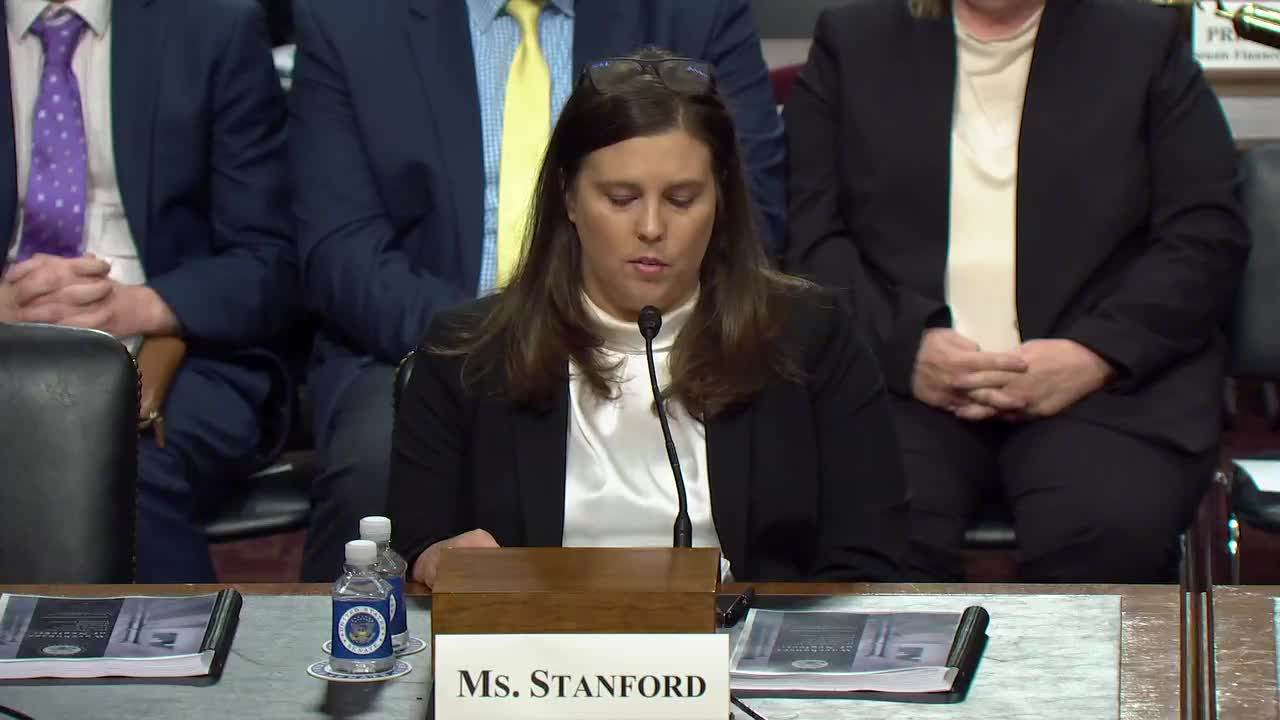Arkansas treatment facilities face scrutiny over systemic abuse
June 12, 2024 | Finance: Senate Committee, Standing Committees - House & Senate, Congressional Hearings Compilation

This article was created by AI summarizing key points discussed. AI makes mistakes, so for full details and context, please refer to the video of the full meeting. Please report any errors so we can fix them. Report an error »

In a recent government meeting, significant concerns were raised regarding the state of psychiatric residential treatment facilities (PRTFs) in Arkansas, highlighting systemic issues of abuse, neglect, and inadequate care. Elizabeth Manley, a Senior Advisor for Health and Behavioral Policy, presented findings from a five-year review of these facilities, emphasizing the urgent need for reform.
Manley detailed alarming instances of violence, including reports of staff physically assaulting children and instances of sexual abuse among peers. However, she cautioned against viewing these incidents as isolated cases, arguing that they reflect a broader, flawed treatment model rather than merely the actions of a few individuals. The pervasive lack of a therapeutic environment and insufficient individualized care were identified as critical failures within the system.
The report criticized the assumption that intensive residential treatment is necessary for all children, asserting that many of the services provided could be effectively delivered in community settings. Manley pointed out that the average therapeutic engagement in these facilities amounts to only about five hours per week, which is insufficient for meaningful recovery.
Moreover, the meeting underscored the chaotic conditions within these facilities, where children often experience a lack of structured engagement and are subjected to inadequate staffing and training. This environment not only fails to support the children's developmental needs but also exacerbates their trauma, leading to a cycle of repeated placements.
Manley called for greater accountability and oversight of these facilities, noting that current regulatory frameworks are insufficient. She highlighted the reliance on national accreditation bodies, which are often funded by the facilities themselves, as a conflict of interest that undermines effective oversight.
The issues discussed are not unique to Arkansas; they reflect a national crisis in the treatment of youth in residential settings. Manley urged for congressional action to address these systemic failures and to promote investment in community-based services that could better serve the needs of children and families. The meeting concluded with a call for a reevaluation of the reliance on residential treatment as a primary solution for youth mental health challenges.
Manley detailed alarming instances of violence, including reports of staff physically assaulting children and instances of sexual abuse among peers. However, she cautioned against viewing these incidents as isolated cases, arguing that they reflect a broader, flawed treatment model rather than merely the actions of a few individuals. The pervasive lack of a therapeutic environment and insufficient individualized care were identified as critical failures within the system.
The report criticized the assumption that intensive residential treatment is necessary for all children, asserting that many of the services provided could be effectively delivered in community settings. Manley pointed out that the average therapeutic engagement in these facilities amounts to only about five hours per week, which is insufficient for meaningful recovery.
Moreover, the meeting underscored the chaotic conditions within these facilities, where children often experience a lack of structured engagement and are subjected to inadequate staffing and training. This environment not only fails to support the children's developmental needs but also exacerbates their trauma, leading to a cycle of repeated placements.
Manley called for greater accountability and oversight of these facilities, noting that current regulatory frameworks are insufficient. She highlighted the reliance on national accreditation bodies, which are often funded by the facilities themselves, as a conflict of interest that undermines effective oversight.
The issues discussed are not unique to Arkansas; they reflect a national crisis in the treatment of youth in residential settings. Manley urged for congressional action to address these systemic failures and to promote investment in community-based services that could better serve the needs of children and families. The meeting concluded with a call for a reevaluation of the reliance on residential treatment as a primary solution for youth mental health challenges.
View full meeting
This article is based on a recent meeting—watch the full video and explore the complete transcript for deeper insights into the discussion.
View full meeting